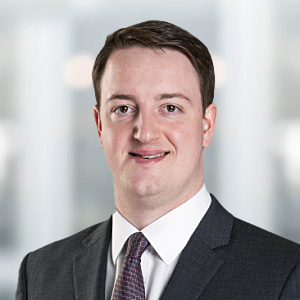In this series of podcasts by Brodies' Advocacy we look at some common – and sometimes controversial – issues that arise for clients and lawyers who are involved in disputes before the courts and tribunals and how those can be managed. In today's episode Laura McMillan and David Ford answer the question 'What do I do if…someone else has the evidence I need?'
What is evidence and why is it important?
Evidence for a court action takes variety of forms. It can be real evidence (something tangible and physical), documentary (written material, including discs, tapes, films and photographs) or oral (the testimony of a witness).
The collection of evidence as part of your case is vitally important. If you want to win your case, you must be able to prove the facts your case relies on.
Evidence is disclosed at various stages of the court action. Some evidence will be produced when the claim or defences are lodged. There will also be deadlines to lodge evidence in advance of the start of a trial.
What if someone else has the evidence?
If someone else has the evidence you need, there are various routes to recover it.
If the action has not been raised, you can rely on the Administration of Justice (Scotland) Act 1972. This allows you to ask the court to grant orders for the recovery of documents or other property in advance of raising a court action. To do this the court has to be satisfied that proceedings are likely to be brought and that the evidence sought will assist with raising the action.
. A list of documents or evidence is drawn up (a specification of documents or a specification of property) which is then put before the court. If the court is satisfied that you are entitled to the evidence, an order for its recovery will be granted.
How do you enforce an order for the recovery of documents?
There are two main routes. The first is the optional procedure. This relies on the person with the evidence (known as a "haver") accepting that the court has ordered production of evidence and voluntarily disclosing the relevant evidence they hold to you. This is voluntary.
If the haver doesn't cooperate, or if you don't think they will cooperate or if there is urgency, the second route is to fix a commission. This is a formal hearing where the haver must attend with the evidence they hold in order that it can be recovered. An experienced lawyer (known as a commissioner) deals with the procedure and ensures that the evidence is produced.
If a court order is granted for the recovery of evidence and you refuse to comply. A failure to do is potentially a contempt of court.
Is there any evidence that cannot be recovered?
You cannot recover evidence in the hope that you might have a case. This is known as a fishing diligence. There are also certain categories of confidential documents that cannot be recovered – there is procedure involving sealed envelopes and the judge that deals with this. The main categories of confidential documents are documents one side has prepared in contemplation of the litigation and communications between lawyers and their clients. The Crown can also assert a public interest immunity over the disclosure of certain documents when it considers it to be in the national interest to do so.
There are no exceptions to the confidentiality rules unless the person with the document decides to waive their privilege.
Summary
Gathering evidence early in a litigation is extremely important. The more thorough your initial investigations are the more likely it is your case will be built on a strong foundation. The late discovery of evidence can lead to delays, discharged trials and liabilities in expenses. In the worst-case scenario, evidence recovered too late might not be allowed to form part of the case.
To hear more about the collection of evidence, listen to our podcast that features David Ford and Laura McMillan.
Listen to our podcast
You can listen to our podcast here or find us on Apple Podcasts, Spotify or wherever you usually listen to your podcasts by searching for "Podcasts by Brodies."
Contributors
Partner & Director of Advocacy
Associate & Solicitor Advocate

